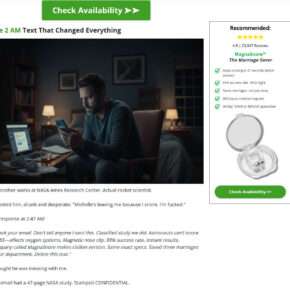Scammers are constantly finding new ways to trick unsuspecting individuals into falling for their schemes. One such scam that has been making the rounds recently is the ‘Vodafone Bill Is Ready’ malware email. This article will delve into what this scam is, how it works, what to do if you have fallen victim, and provide valuable insights to help you stay safe online.
![‘Vodafone Bill Is Ready’ Malware Email [Explained] 1 Scams](https://malwaretips.com/blogs/wp-content/uploads/2023/07/Scams.jpg)
What is the ‘Vodafone Bill Is Ready’ Malware Email?
The ‘Vodafone Bill Is Ready’ malware email is a phishing scam that targets Vodafone customers. The email appears to be from Vodafone, informing the recipient that their bill is ready and they need to click on a link to view it. However, this email is not from Vodafone and the link leads to a malicious website or downloads malware onto the victim’s device.
How the Scam Works
The scam starts with the victim receiving an email that appears to be from Vodafone. The email is designed to look legitimate, with Vodafone branding and a professional layout. It may even include the recipient’s name and other personal details, making it seem more convincing.
The email typically states that the recipient’s Vodafone bill is ready and provides a link to view it. The link may be disguised as a button or embedded within the text. When the victim clicks on the link, they are taken to a fake website that looks like the Vodafone login page.
On this fake website, the victim is prompted to enter their Vodafone account credentials, such as their username and password. Once the victim enters this information, the scammers behind the scam gain access to their Vodafone account. They can then use this information for various malicious purposes, such as making unauthorized purchases or stealing personal information.
What to Do If You Have Fallen Victim
If you have fallen victim to the ‘Vodafone Bill Is Ready’ malware email scam, it is important to take immediate action to protect yourself and minimize the damage.
- Change your Vodafone account password: As soon as you realize you have been scammed, change your Vodafone account password. This will prevent the scammers from accessing your account further.
- Contact Vodafone: Inform Vodafone about the scam and provide them with any relevant information, such as the email you received and any actions you took (e.g., clicking on the link, entering your credentials).
- Scan your device for malware: Run a scan with a reputable antivirus or anti-malware software, such as Malwarebytes Free, to detect and remove any malware that may have been downloaded onto your device.
- Monitor your accounts: Keep a close eye on your bank accounts, credit cards, and other online accounts for any suspicious activity. If you notice any unauthorized transactions or changes, report them immediately.
- Be cautious of future emails: Going forward, be extra cautious of any emails that ask for personal information or contain suspicious links. Always verify the sender’s identity and double-check the email’s legitimacy before taking any action.
Protecting Yourself from Email Scams
While it is unfortunate that scams like the ‘Vodafone Bill Is Ready’ malware email exist, there are steps you can take to protect yourself from falling victim to such scams in the future.
- Be skeptical of unsolicited emails: If you receive an email that you were not expecting or from an unknown sender, approach it with caution. Do not click on any links or download any attachments without verifying the sender’s identity.
- Check for spelling and grammar mistakes: Many scam emails contain spelling and grammar mistakes. Legitimate companies usually have professional proofreaders who ensure their emails are error-free.
- Verify the sender’s identity: If you receive an email from a company or organization, verify their identity by contacting them directly through their official website or customer support channels. Do not rely solely on the information provided in the email.
- Keep your software up to date: Regularly update your operating system, web browsers, and antivirus software to ensure you have the latest security patches and protection against known vulnerabilities.
- Educate yourself about scams: Stay informed about the latest scams and phishing techniques. Familiarize yourself with common red flags and warning signs to help you identify and avoid potential scams.
Summary
The ‘Vodafone Bill Is Ready’ malware email is a phishing scam that targets Vodafone customers. It tricks victims into clicking on a link that leads to a fake website, where their Vodafone account credentials are stolen. If you have fallen victim to this scam, take immediate action by changing your password, contacting Vodafone, scanning your device for malware, and monitoring your accounts for any suspicious activity.
To protect yourself from email scams, be skeptical of unsolicited emails, check for spelling and grammar mistakes, verify the sender’s identity, keep your software up to date, and educate yourself about scams. By staying vigilant and following these precautions, you can reduce the risk of falling victim to such scams and protect your personal information online.




